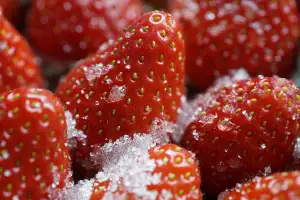Can Colostrum Cure Your Acne?

- What is colostrum?
- Colostrum: Nutritional powerhouse
- Skin benefits of colostrum
- Colostrum for acne: Potential benefits
- Anti-inflammatory properties
- Growth factors for skin repair
- Balancing skin microbiome
- How to use colostrum for acne
- Available forms of colostrum
- Dosage and application tips
- Potential side effects
- Who should avoid colostrum
- Consulting a dermatologist
- Colostrum acne: The bottom line
What is colostrum?
Colostrum is the first milk produced by mammals after giving birth, including humans. It's a powerhouse of nutrients, antibodies, and growth factors that are essential for a newborn's health and development. While we typically associate colostrum with infants, bovine colostrum, sourced from cows, has gained popularity as a supplement for its potential health benefits, including for skin conditions like acne.
Colostrum is packed with immune-boosting components like immunoglobulins, lactoferrin, and proline-rich polypeptides (PRPs). These components can help fight off bacteria, reduce inflammation, and promote healing, all of which are crucial for managing acne. Acne is often caused by an overgrowth of bacteria and inflammation within the skin's pores. Colostrum's antibacterial and anti-inflammatory properties may help combat these underlying causes, potentially reducing breakouts and promoting clearer skin.
Furthermore, colostrum contains growth factors like epidermal growth factor (EGF) and insulin-like growth factor (IGF), which play a role in skin cell growth and repair. These growth factors can help speed up the healing process of acne lesions, reducing the likelihood of scarring and promoting a smoother complexion.
Colostrum: Nutritional powerhouse
Colostrum, the first milk produced after childbirth, is a nutritional powerhouse packed with immune factors, growth factors, and other beneficial compounds. While often associated with infant health, colostrum has gained attention for its potential skin benefits, including acne treatment.
Colostrum contains immunoglobulins, potent antibodies that fight bacteria and viruses. Acne is often caused by the bacteria Cutibacterium acnes (C. acnes), which thrives in clogged pores. Immunoglobulins in colostrum may help inhibit the growth of C. acnes, reducing inflammation and breakouts.
Growth factors, such as epidermal growth factor (EGF) and transforming growth factor (TGF), are abundant in colostrum. These factors play a crucial role in skin cell growth, repair, and regeneration. By promoting skin cell turnover, colostrum may help fade acne scars and improve skin texture.
Lactoferrin, an iron-binding protein found in colostrum, exhibits antimicrobial and anti-inflammatory properties. It helps regulate sebum production, which can contribute to acne development. By controlling excess oil production, lactoferrin may prevent pore clogging and reduce breakouts.
Colostrum can be incorporated into skincare routines through topical creams, serums, or masks. When applied to the skin, colostrum's bioactive compounds penetrate the pores, targeting acne-causing bacteria and promoting healing.
While research on colostrum for acne is promising, more studies are needed to determine its efficacy and optimal usage. It's essential to consult with a dermatologist before using colostrum products, especially if you have any underlying skin conditions or allergies.
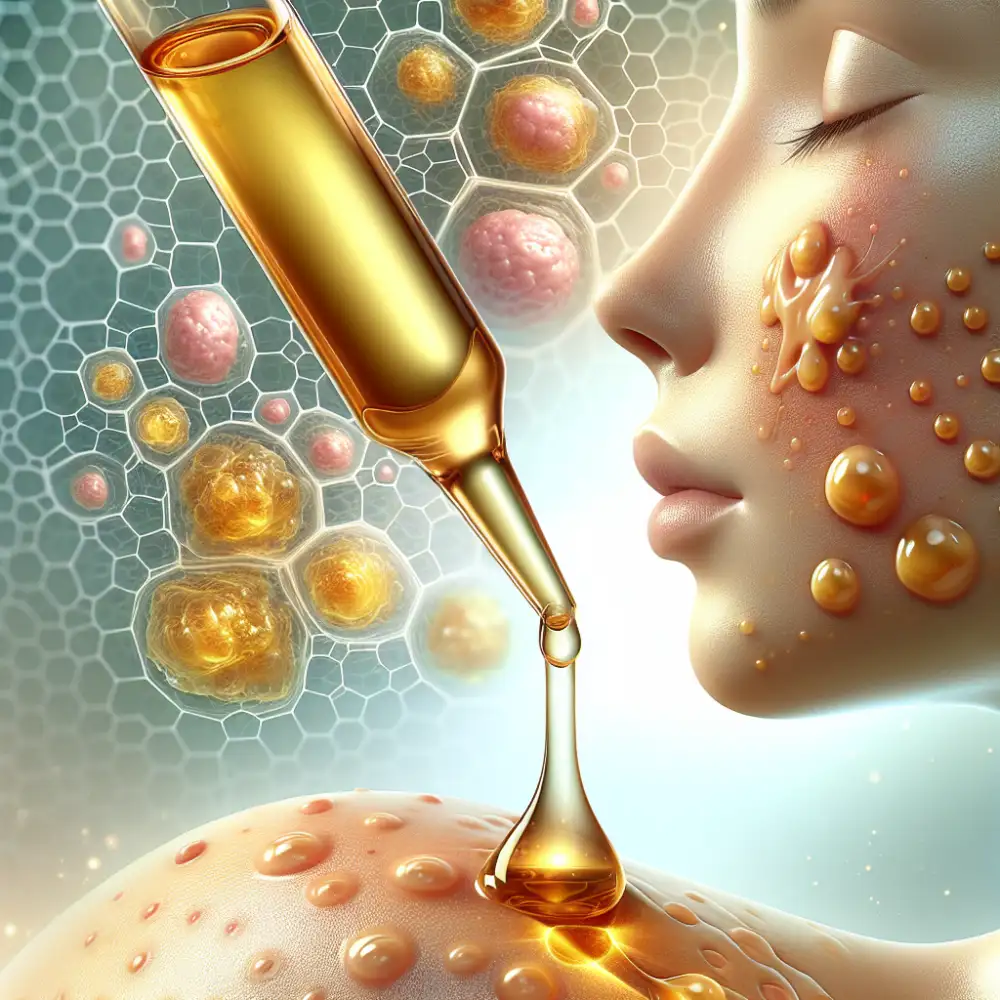
Skin benefits of colostrum
Colostrum, the first milk produced after birth, is a powerhouse of nutrients and immune factors. While often associated with infant health, colostrum also offers potential benefits for the skin, particularly for those dealing with acne.
Colostrum contains growth factors that can stimulate skin cell growth and repair, potentially aiding in the healing of acne lesions. Additionally, its lactoferrin content boasts antimicrobial properties that may help control the growth of P. acnes, the bacteria implicated in acne development.
Inflammation plays a significant role in acne, and colostrum's anti-inflammatory properties, attributed to components like lactoferrin and cytokines, could help reduce redness and swelling associated with breakouts.
While research on colostrum for acne is ongoing and more studies are needed, existing findings suggest its potential as a complementary approach. Colostrum is available in various forms, including topical creams and oral supplements. However, it's crucial to consult a dermatologist before incorporating colostrum into your skincare routine, especially if you have existing skin conditions or allergies.
Colostrum for acne: Potential benefits
Colostrum, the first milk produced after giving birth, is a powerhouse of nutrients and bioactive compounds that support the newborn's immune system and overall health. While traditionally used for its immune-boosting properties, colostrum has recently gained attention for its potential benefits in addressing skin concerns, including acne.
One of the key components of colostrum that may contribute to its acne-fighting potential is its high concentration of growth factors. Growth factors are naturally occurring proteins that play a crucial role in tissue repair and regeneration. In the context of acne, growth factors found in colostrum may help to soothe inflammation, promote wound healing, and reduce the appearance of acne scars.
Furthermore, colostrum is a rich source of immunoglobulins, also known as antibodies. These antibodies help to fight off harmful bacteria and viruses, which can contribute to acne breakouts. By strengthening the skin's natural defense mechanisms, colostrum may help to prevent future breakouts and maintain a clearer complexion.
Another way colostrum may benefit acne-prone skin is through its potential to regulate sebum production. Sebum is an oily substance produced by the skin's sebaceous glands. While sebum is essential for maintaining skin hydration, an overproduction of sebum can clog pores and contribute to acne. Some studies suggest that colostrum may help to balance sebum levels, reducing the likelihood of breakouts.


It's important to note that research on the use of colostrum for acne is still in its early stages, and more studies are needed to confirm its efficacy and determine optimal dosages. If you're considering using colostrum for acne, it's essential to consult with a healthcare professional to ensure its suitability for your individual needs.
Colostrum, with its potent blend of growth factors and immune components, offers a promising natural approach to acne treatment, potentially addressing both inflammation and bacterial overgrowth.
Dr. Evelyn Blackwood
Anti-inflammatory properties
Colostrum, the first milk produced after childbirth, is a powerhouse of nutrients and bioactive compounds, including immunoglobulins, growth factors, and lactoferrin. These components contribute to its remarkable anti-inflammatory properties, making it a potential natural remedy for acne. Acne, an inflammatory skin condition, arises from the overproduction of sebum, clogged pores, and the proliferation of bacteria.
Colostrum's potent anti-inflammatory action helps combat these factors. Lactoferrin, an iron-binding protein, exhibits antimicrobial effects, inhibiting the growth of acne-causing bacteria like P. acnes. By reducing bacterial load, lactoferrin helps control inflammation and prevent acne formation. Growth factors present in colostrum, such as epidermal growth factor (EGF) and transforming growth factor (TGF), promote skin cell growth and repair, aiding in the healing of acne lesions and reducing inflammation.
Furthermore, colostrum's immunoglobulins, particularly IgG, can neutralize toxins and pathogens that contribute to inflammation and exacerbate acne. While research on colostrum for acne is still emerging, preliminary studies suggest its potential benefits. A study published in the Journal of Cosmetic Dermatology found that a topical cream containing bovine colostrum significantly reduced inflammatory acne lesions compared to a placebo. These findings highlight the promising anti-inflammatory properties of colostrum and its potential as a natural approach to managing acne.
Growth factors for skin repair
Colostrum, the first milk produced after birth, is rich in growth factors that play a crucial role in skin repair and regeneration. These growth factors are essential for promoting cell growth, collagen synthesis, and wound healing, making colostrum a potential natural remedy for acne.
Epidermal growth factor (EGF) stimulates the growth and proliferation of skin cells, accelerating the repair of damaged skin tissue caused by acne. It helps to regenerate the epidermis, reducing the appearance of acne scars and promoting a smoother skin texture.
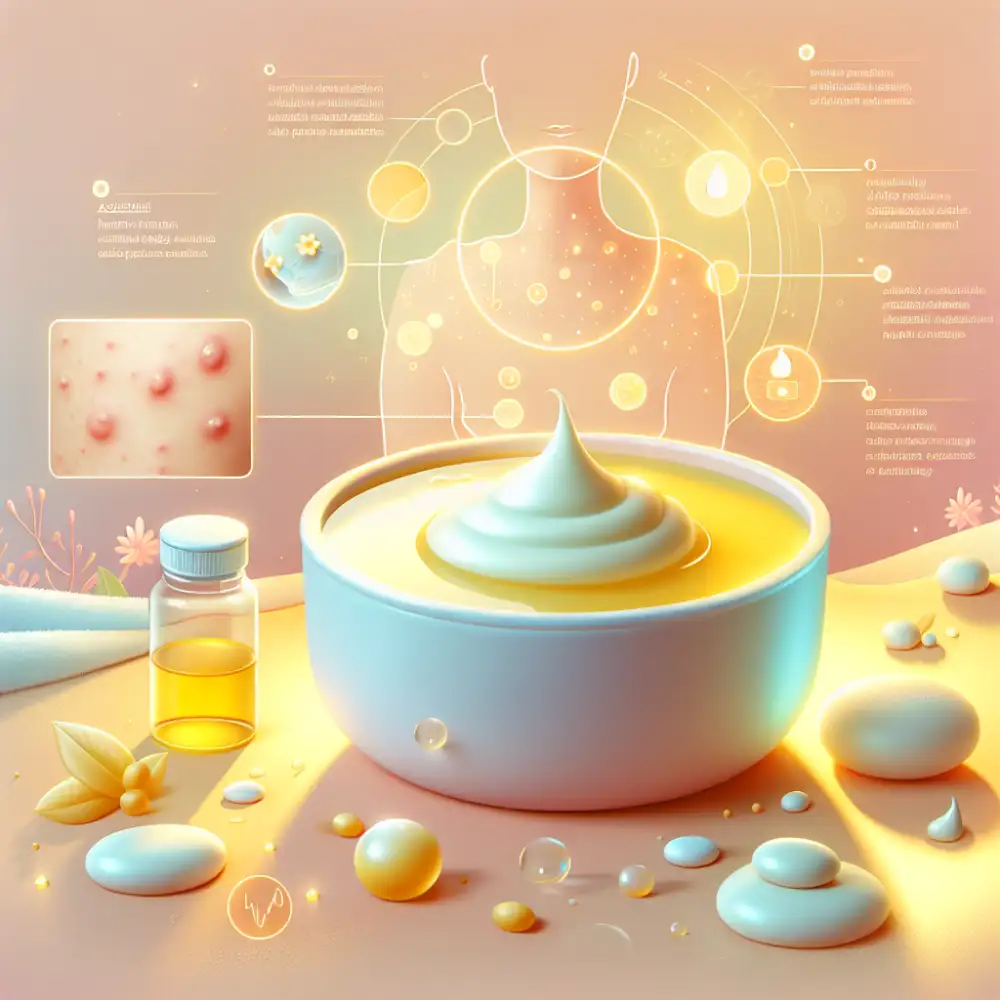
Transforming growth factor (TGF) is vital for collagen synthesis, a protein that provides structural support to the skin. Acne can lead to collagen degradation, resulting in scar formation. TGF in colostrum aids in collagen production, improving skin elasticity and minimizing the appearance of acne scars.
Insulin-like growth factor (IGF) promotes cell growth and survival, contributing to the overall health and rejuvenation of the skin. It helps to reduce inflammation associated with acne and supports the skin's natural healing process.
Fibroblast growth factor (FGF) stimulates the production of fibroblasts, cells responsible for producing collagen and elastin. By promoting fibroblast activity, FGF in colostrum contributes to skin elasticity, firmness, and a reduction in acne-related scarring.
The growth factors in colostrum work synergistically to accelerate skin repair, reduce inflammation, and promote collagen synthesis, making it a promising natural approach to address acne and its associated skin concerns.
Balancing skin microbiome
The skin microbiome, a delicate ecosystem of bacteria, fungi, and viruses, plays a crucial role in skin health. When balanced, it helps protect against infection, reduces inflammation, and maintains a healthy skin barrier. However, factors like diet, stress, and harsh skincare products can disrupt this balance, potentially contributing to skin issues like acne.
| Feature | Colostrum | Traditional Acne Treatments (e.g., Benzoyl Peroxide, Salicylic Acid) |
|---|---|---|
| Availability | May require purchase from specialized retailers | Widely available over-the-counter and in prescription strength |
| Application Method | Topical creams or serums | Topical creams, gels, washes, or oral medication |
| Scientific Evidence | Limited and inconclusive research on effectiveness for acne | Extensive research and established efficacy for acne treatment |
Colostrum, the first milk produced by mammals after giving birth, is rich in bioactive compounds like immunoglobulins, lactoferrin, and growth factors. While research on colostrum for acne is still emerging, some studies suggest that these components may influence the skin microbiome in a positive way.
For example, lactoferrin, a protein found in colostrum, exhibits antimicrobial properties that could help control the growth of acne-causing bacteria like Cutibacterium acnes (formerly Propionibacterium acnes). Additionally, colostrum's immunomodulatory effects might help calm inflammation associated with acne.


While promising, it's important to note that more research is needed to fully understand how colostrum impacts the skin microbiome and its efficacy in treating acne. If you're considering using colostrum for acne, consult with a dermatologist or healthcare professional to determine if it's right for you. They can provide personalized advice based on your individual skin needs and medical history.
How to use colostrum for acne
Colostrum is the first milk produced by mammals after giving birth, and it's rich in antibodies, growth factors, and nutrients that support the newborn's immune system and growth. While traditionally used to boost immunity, some people believe colostrum can help with acne due to its potential anti-inflammatory and antibacterial properties.
Proponents suggest that the growth factors in colostrum might help repair skin tissue and reduce acne scarring. Additionally, its lactoferrin content, an iron-binding protein, is believed to possess antibacterial properties that could combat acne-causing bacteria.
However, it's crucial to understand that scientific research on colostrum's effectiveness in treating acne is limited. While some studies suggest potential benefits, more research is needed to confirm these findings and determine optimal dosages and application methods.
If you're considering using colostrum for acne, consult a dermatologist or healthcare professional. They can help you weigh the potential benefits and risks, and advise you on the appropriate usage and dosage. Remember, colostrum is generally considered safe for consumption, but it's essential to choose reputable sources and follow recommended guidelines.
While colostrum might hold promise as a complementary approach to acne treatment, it shouldn't be considered a primary treatment method. A comprehensive acne treatment plan typically involves a combination of good skincare practices, lifestyle modifications, and potentially prescribed medications.
Available forms of colostrum
Colostrum is available in various forms, each offering its own set of benefits for acne treatment.
Colostrum supplements are a popular option, available in capsules, tablets, and powders. These supplements typically contain concentrated bovine colostrum, which is rich in immune factors, growth factors, and other nutrients that can help reduce inflammation, promote skin healing, and fight acne-causing bacteria.
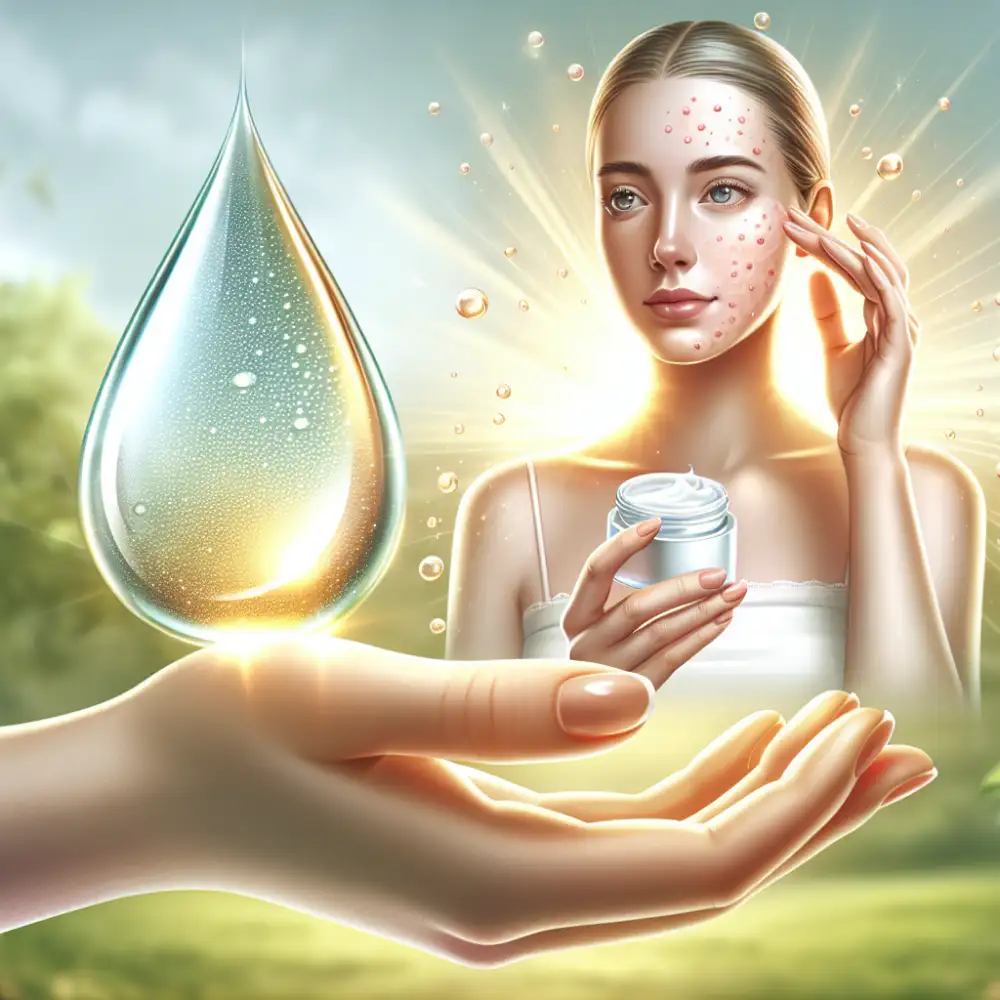
Topical colostrum creams and serums are specifically designed for direct application to the skin. These products often combine colostrum with other acne-fighting ingredients like tea tree oil or salicylic acid to enhance their effectiveness. Topical colostrum can help soothe irritated skin, reduce redness, and promote a clearer complexion.
When choosing a colostrum product for acne, it's essential to consider the form, concentration, and quality. Look for products from reputable brands that use high-quality colostrum sourced from pasture-raised cows. Additionally, check the ingredient list to ensure the product is free from any potential irritants or allergens.
Dosage and application tips
It is generally recommended to start with a low dose of colostrum and gradually increase it as needed. This allows your body to adjust to the supplement and may help to minimize any potential side effects. A typical starting dose for colostrum powder is 500-1000 mg per day, taken orally. You can gradually increase the dosage up to 2000-3000 mg per day, or as directed by your healthcare professional. It's important to note that there is no standardized dosage for colostrum, as individual needs may vary. Factors such as the severity of your acne, your overall health, and other medications you may be taking can all influence the appropriate dosage for you. Colostrum can be taken in various forms, including capsules, powders, and chewable tablets. Choose a form that is convenient for you and follow the instructions on the product label carefully. For optimal absorption, it is generally recommended to take colostrum on an empty stomach, at least 30 minutes before or 2 hours after meals. However, you can take it with food if you experience any digestive discomfort. It's important to consult with a dermatologist or healthcare professional before incorporating colostrum into your acne treatment regimen. They can help determine the appropriate dosage for you, assess any potential interactions with other medications or supplements you may be taking, and monitor your progress.
Potential side effects
While generally considered safe for most people when taken orally, colostrum may cause side effects in some individuals. These can include:
Digestive issues like diarrhea, gas, nausea, and vomiting
Allergic reactions, particularly in those with a dairy allergy, which can manifest as hives, itching, swelling, and difficulty breathing
Interactions with certain medications, so it's crucial to consult your doctor before using colostrum if you are taking any medications
It's important to note that research on colostrum for acne is still limited, and more studies are needed to determine its effectiveness and long-term safety.
Always consult with a dermatologist or healthcare professional before using colostrum or making any changes to your acne treatment plan. They can help you weigh the potential benefits and risks based on your individual health status and medical history.
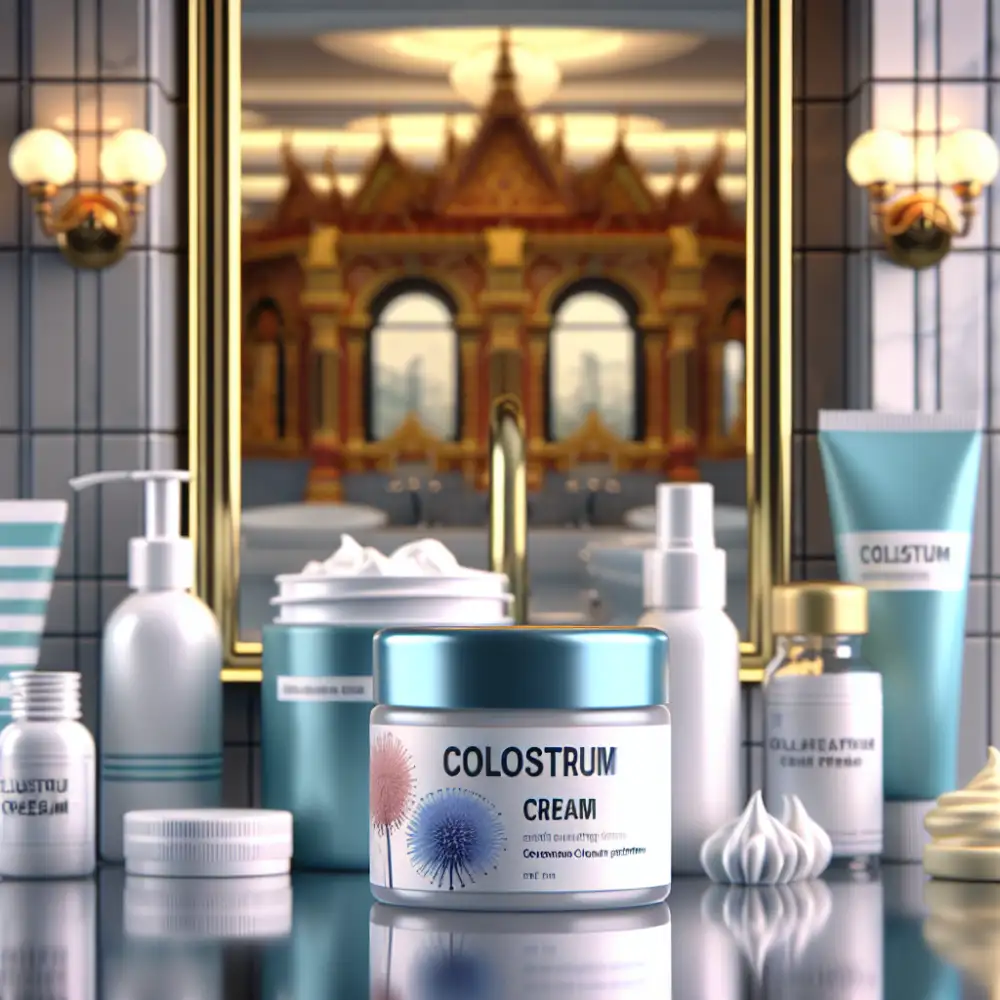
Who should avoid colostrum
While colostrum is generally considered safe for consumption, certain individuals should exercise caution or avoid it altogether, especially when considering its potential impact on acne:
People with a dairy allergy or lactose intolerance: Colostrum is a dairy product and contains lactose. Consuming colostrum can trigger allergic reactions or intolerance symptoms like bloating, gas, and diarrhea.
Pregnant or breastfeeding women: Limited research exists on colostrum's safety during pregnancy and breastfeeding. It's best to err on the side of caution and avoid using colostrum supplements during these times.
Individuals with sensitivities to growth factors: Colostrum is rich in growth factors, which can be beneficial but might also exacerbate certain skin conditions or have unforeseen interactions with existing health issues.
Those with hormone-sensitive acne: While research on colostrum's effect on acne is limited, some individuals with acne triggered by hormonal fluctuations might find their condition worsens. This is due to the potential influence of growth factors on hormone balance.
It's crucial to consult a healthcare professional before adding colostrum to your diet, especially if you have any underlying health conditions or concerns about its potential effects on acne. They can provide personalized advice based on your individual circumstances and medical history.
Consulting a dermatologist
If you're struggling with acne, you might be tempted to try every remedy under the sun, and that might include colostrum. Colostrum is the first milk produced by mammals after giving birth, and it's packed with nutrients that support the newborn's immune system. Some people believe that these immune-boosting properties might also help with acne. While there's some research suggesting that bovine colostrum could have a positive effect on skin health, it's not a proven acne treatment.
Acne is a complex condition with various causes, including genetics, hormones, and bacteria. Dermatologists are medical professionals specializing in diagnosing and treating skin conditions like acne. They can assess your specific situation, identify your acne triggers, and recommend the most effective treatment plan for you. This might involve topical creams, oral medications, or other therapies.
Remember, self-treating can sometimes worsen skin conditions. It's always best to consult a dermatologist before trying new remedies or making significant changes to your skincare routine, especially when it comes to substances like colostrum, which aren't fully understood in the context of acne treatment.
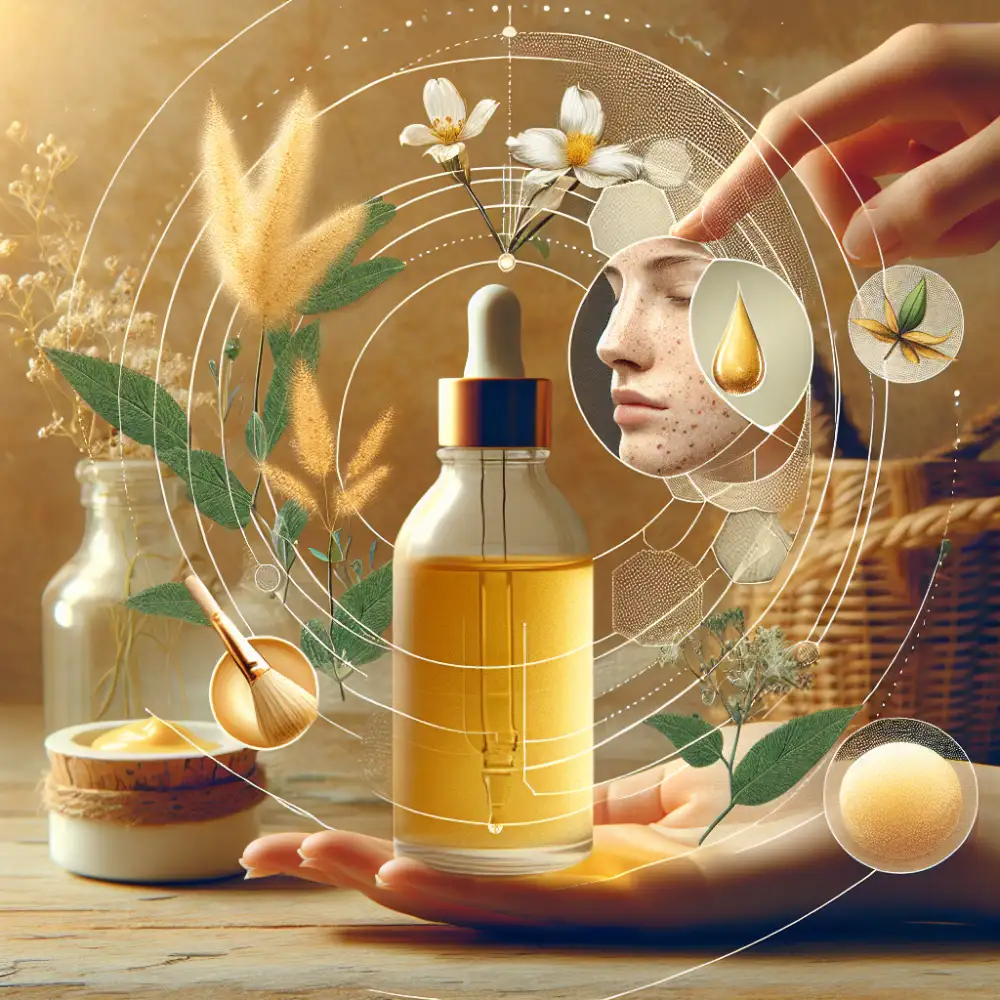
Colostrum acne: The bottom line
While colostrum is a powerhouse of nutrients and antibodies crucial for newborn development, its role in treating acne remains uncertain. Some proponents suggest that colostrum's growth factors and immune components might influence skin health, potentially reducing inflammation and promoting healing. However, scientific evidence supporting these claims is limited.
Existing research primarily focuses on bovine colostrum, the first milk produced by cows. While some studies indicate potential benefits for wound healing and skin regeneration, these studies are often small and don't specifically address acne.
It's important to remember that acne is a complex condition with various contributing factors, including genetics, hormones, and bacteria. While colostrum might offer some benefits for overall skin health, it's unlikely a standalone solution for acne.
If you're considering using colostrum for acne, consult a dermatologist. They can assess your skin condition, discuss potential risks and benefits, and recommend evidence-based treatment options. Remember, relying solely on anecdotal evidence or unverified claims can be risky and might not yield the desired results.
Published: 27. 06. 2024
Category: Food


